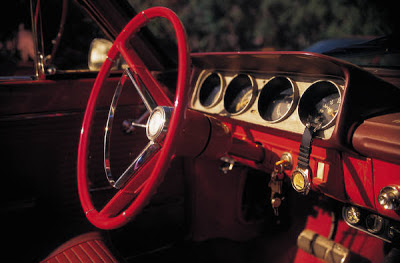Pent-up demand and the need to replace the
country's ageing fleet, alongside modest upticks in consumer spending and cheapening
borrowing costs, will provide strong supports to new car sales.
Key Views
- Pent-up demand and the need to replace the country's ageing fleet will encourage new car sales.
- Historically low interest rates and falling borrowing costs, rising consumer confidence and strong consumer credit growth will spur auto loans growth.
- Commercial vehicles will perform strongly due to an uptick in business confidence and rising capital expenditure with heavy trucks outperforming the segment due to an uptick in heavy construction activity.
- Vehicle production will continue double-digit expansion as Fiat Chrysler Automobiles increases the output of Alfa Romeos in time for new releases.
- Bus production on track for terminal decline unless deal can be reached between investors in Italy's last remaining bus manufacturer.
For
more information Visit at: http://www.marketresearchreports.com/business-monitor-international/italy-autos-report-q2-2016
The short-term outlook for the Libyan new vehicle
sales market remains fairly negative. This is primarily due to the precarious
security situation within the country, which has resulted in most foreign
automakers departing the market.
Key Views
- We expect 16% growth in new vehicle sales over 2016-2020, to reach over 30,000 units by 2020.
- Most international carmakers have withdrawn their non-Libyan staff entirely from the Libyan market, given the ongoing operational and security challenges in the North African state.
- In the short term, it does not look as though the operational environment for foreign carmakers looking to sell within Libya will improve dramatically.
- If the security situation stabilises, then the local sales outlook would be encouraging for commercial vehicles, given the need for extensive reconstruction of infrastructure.
- Primarily Asian carmakers (Hyundai, Mazda and Toyota) maintain a local dealership presence.
For
more information Visit at: http://www.marketresearchreports.com/business-monitor-international/libya-autos-report-q2-2016
Elevated exchange rates will continue to encourage
import substitution which will allow domestic production to not fall as fast as
domestic sales.
Key Views
- Falling real wages, due to decreasing gross wages, and working hours alongside high inflation will all weigh on consumer purchasing power and confidence leading to faster sales declines in passenger cars than in commercial vehicles.
- The renewed scrappage scheme will help the market find its floor in 2016 but will be far less effective than in previous years.
- Pricing pressures to remain high thanks to weak currency exchange rates and the introduction of Euro 5 standards.
- Risk of Tier 1 and 2 suppliers leaving the market, which could erode the development of Russia's local supplier base.
For
more information Visit at: http://www.marketresearchreports.com/business-monitor-international/russia-autos-report-q2-2016

No comments:
Post a Comment